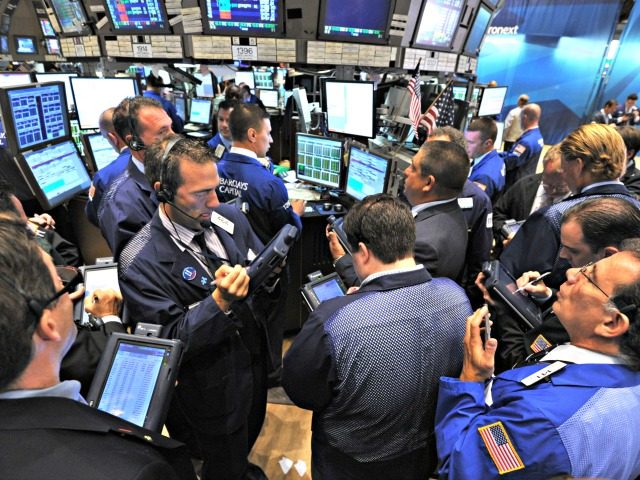“Government Funding Bill past last night in the House of Representatives. Now Democrats are needed if it is to pass in the Senate — but they want illegal immigration and weak borders. Shutdown coming? We need more Republicans in 2018!”
With those words President Donald Trump appeared to predict a government shutdown and to downplay the consequences. His attitude almost perfectly reflects how investors regard the possibility that parts of the government could shut down late Friday night.
Far from rattling finance markets, the president’s remarks appear to have reassured investors. All the major indexes were headed up slightly as the close of trading loomed on Friday–with just eight hours or so to go before the shutdown.
That shouldn’t be surprising. The stock rally was built on a burst of optimism after the president’s election, sustained by regulation and a flowering of consumer confidence, and kept going by the passage of the historic tax overhaul. This is not a market craving a president who caves easily or often to the opponents of his administration.
In any case, financial markets typically shrug off government shutdowns. They do not seem hurt corporate earnings at all, and so not surprisingly they do not have much of an effect on stocks. It’s likely that even if some consumption is delayed by federal government employees who do not get paid during a shutdown, almost all of it is made up for when the checks start coming again. In fact, there may even be extra-spending due to a rush of income from the issuance of withheld payments.
On average, the stock market has declined just 0.6 percent during a government shutdown. In recent years, as shutdowns have become more familiar, stocks actually rose during shutdowns. Last time the government shut down, in 2013, stocks rose by more than 3 percent. In any long-term chart, shutdowns are invisible.
This shutdown is even less likely than several past shutdowns to have a serious impact on markets or the economy. That’s because the things driving the shutdown are more or less unrelated to financial markets or economic performance. Unlike debates over budget ceilings or even levels of government spending, the current fight over the fate of a government program granting temporary amnesty to a few hundred thousand workers is economically irrelevant.
There have been attempts to make the debate over DACA and Dreamers appear relevant. Some of the chief executives of big companies have argued that the DACA recipients are essential to their businesses. That, however, stretches credibility. No one thinks Apple, for example, will have any significant disruption if it is forced to operate without DACA recipients. In total, the 700,000 DACA recipients are just a speck in the sea of America’s 160 million strong workforce.
There are some possible disruptions that investors could care about. A lot of government data will not be released if the government is shut down–and some might not be collected. But next week is actually particularly light when it comes to data releases. The most significant releases will be the weekly jobless figures due on Thursday and the first official reading of fourth-quarter GDP on Friday.
The Federal Reserve, however, will continue to operate on a business as usual basis. Nothing changes from its perspective, as it is funded outside the government’s budget. The Securities and Exchange Commission has announced its plans to continue to operate during a shutdown.
In short, the shutdown is likely to be a non-event for markets and the underlying economy.

COMMENTS
Please let us know if you're having issues with commenting.